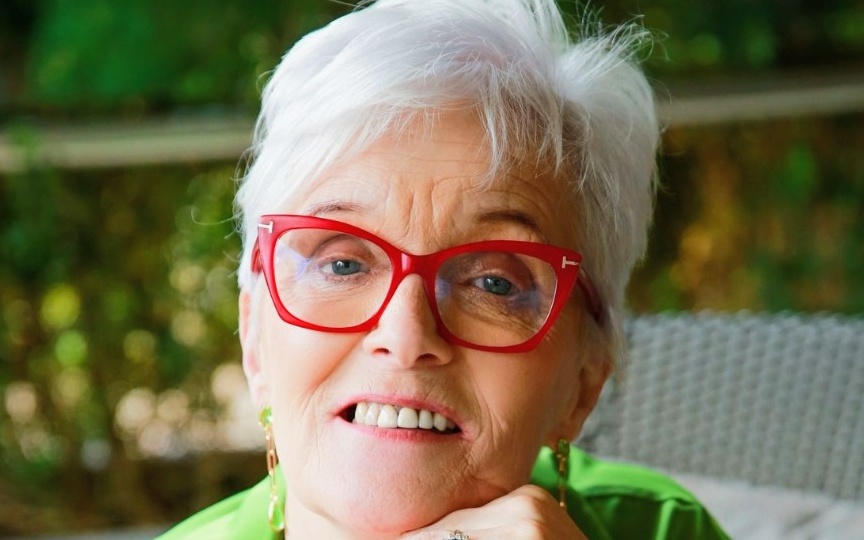Five years ago this month, in November 2020, medical history was made at Richmond Pharmacology when a patient received the first CRISPR therapy delivered systemically through the bloodstream, using lipid nanoparticles to edit genes inside the human body. This marked the start of the clinical trial of Nex-Z, a therapy developed by Intellia Therapeutics using the Nobel Prize-winning CRISPR-Cas9 technology often described as ‘genetic scissors’.
Now, that first patient, Ann Deegan from Ballinagore, Ireland, and another early Nex-Z recipient, James Green from Burt, Donegal, have spoken publicly for the first time to describe how gene editing transformed their experience of suffering from hereditary amyloidosis (ATTR), a disease from which they had both seen family members die.
Ann and James appeared at London Life Sciences Week alongside Dr Jörg Taubel, Richmond Pharmacology’s CEO and founder, leader of the 2020 landmark clinical trial that ushered in a new era of medicine.
Amyloidosis occurs when a faulty gene produces misfolded TTR proteins which build up in the body in amyloid deposits in a person’s organs, causing them to fail. Nex-Z carries a copy of part of the genetic instructions for making the TTR proteins to the exact spot in the DNA that needs changing. The Cas9 enzyme makes a precise cut at that location. The cell’s natural DNA repair systems then mend the break. Nex-Z illustrates a process with enormous potential for treating genetic diseases at source either by switching off a faulty gene or, in more advanced applications under development, inserting a healthy one.
Today, five years on, hundreds of patients with rare diseases are benefitting from CRISPR gene editing in clinical trials across the world. And in the last few weeks, there are results showing that another in vivo genetic medicine, Verve-102, has potential to provide one-and-done treatments in patients with high cholesterol, a common precursor to cardiovascular disease. This is a development which could have dramatic implications for public health.*
Ann Deegan, a retired nurse, was diagnosed in 2019 with ATTR-PN, a hereditary form of amyloidosis that causes misfolded proteins to build up around the nerves. She said:
“My brother was diagnosed in 2016 and was told to go home and get his affairs in order. There was nothing they could do. I’ve been so, so lucky and I’ve been so well since. My daughter has the gene and my nephew has the gene. My daughter said ‘Mam, you’ll have done something and there’ll be a tablet out there for me in 20 years’ time’.”
Today, Ann’s health has improved dramatically. Her body no longer produces the faulty protein, and existing deposits are diminishing as her body naturally clears them.
“I rarely talk about being sick — it doesn’t define me,” said Ann. “But if sharing my experience helps someone recognise the signs early or feel hope for the future, it’s worth it. The CRISPR trial has been life-changing — giving me energy, freedom, and the chance to truly enjoy life with my family. Early diagnosis and access to innovative treatments are key. Knowledge truly is power.”
James Green discovered in 2020 that he carried the TTR gene mutation responsible for hereditary amyloidosis. In January 2021, he became the second person worldwide to receive a CRISPR-Cas9 infusion, also at Richmond.
Having seen the impact of the condition on their families, James and Ann went on to co-found the Amyloidosis Ireland patient support group, helping others navigate the challenges of this rare disease.
“Being part of the CRISPR trial has been life-changing,” James said. “It’s transformed not only my health but also my outlook on what’s possible for patients with hereditary amyloidosis. This isn’t just about me — it’s about giving hope to families who may face the same challenges in the future.”
Since that groundbreaking first trial with Intellia Therapeutics, more than 200 patients have undergone in vivo gene-editing, by a simple infusion, at Richmond’s London facility – more than at any other clinical site in the world. Richmond has collaborated on these gene editing trials with leading innovators in the field, including BEAM, Verve, CRISPR Therapeutics, and Regeneron.
Dr Jörg Taubel reflected: “On 5 November 2020, CRISPR-Cas9 gene editing was administered by systemic infusion into a human for the very first time — under my supervision at Richmond Pharmacology. That milestone followed half a decade of progress in gene silencing through RNA interference.
“Since then, Richmond has dosed more patients with in-vivo gene-editing and base-editing therapies than any other centre in the world. Many of these patients have been referred from the National Amyloidosis Centre at London’s Royal Free Hospital over the course of a 10-year relationship.
“In trial after trial, we’ve been first to dose. We remain the world leader in this field and are proud to continue transforming revolutionary science into real hope where previously there was none.”

James Green.










